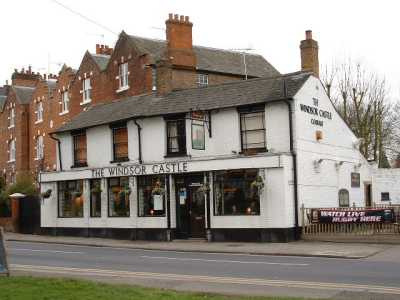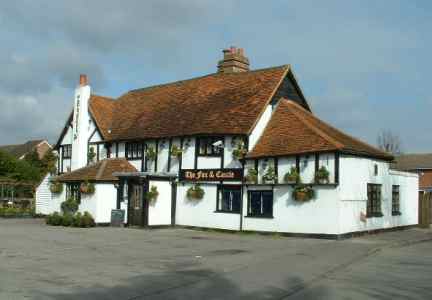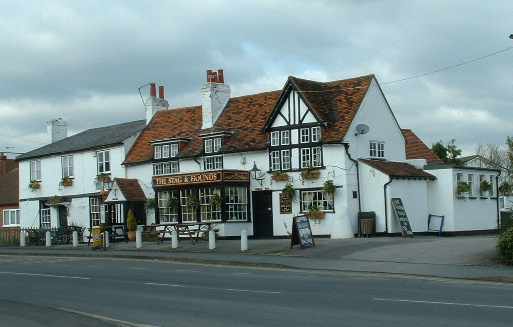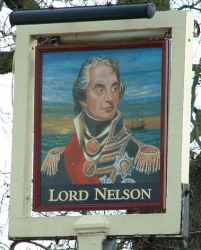| |
history: |
Some Selected Reports from The Windsor
and Eton Express
22nd Dec 1827
Nelson Old Windsor
Local Police
Monday
At a sitting of the Magistrates at the
Town-hall, this morning, Thomas Bailey, a coachman in the employ of
Mr.Milton the coachproprietor, appeared on a warrant charged with
assault and defamation.
The complainant, Henry Frowd, a respectable looking young man, in the
service of Mr.Aldridge of Datchet, stated, that on the evening of the
6th instant he was at Egham hill, where he had been to pay a last visit on
the remains of his father, who had died on the previous evening; that on the
Windsor coach coming up, his brother hailed the accused, when complainant
mounted behind, and after his reply to the coachman's usual question of "all
right ?" the latter drove on; that, when they had proceeded a little beyond
the Nelson public-house, at Old Windsor, an inside passenger called to
Bailey to stop the coach, as a bag was then hanging from the roof; that
immediately the accused drew up, he turned round to complainant, and asked
where he got up, and upon his (complainant's) answering "at Egham," he
replied, "It's a lie, you only want to rob the coach, and if you don't get
down immediately I'll bundle you down." Complainant, to prevent altercation
, alighted, telling the coachman he should complain of him at the office;
upon this accused also got down, again charged witness with attempting to
rob the coach, collared him, and repeatedly struck him on the head, although
he offered to accompany accused wherever he chose.
Cross-examined by Mr.W.J.Voules. Had no previous acquaintance with
the young man who sat beside him; had not seen the bag till noticed by the
gentleman inside; did not hear the gentleman call out that the coach was
being robbed; the accusation of robbery might have been equally pointed at
the other young man; thought that the coachman's impression was, that a
robbery was being committed.
William Frowd, brother to the complainant, corroborated the above
statement as far as related to his stopping the coach at Egham hill, and his
brother getting up behind with the knowledge of the accused.
Thomas Mills, jun., of Old Windsor, was an outside passenger on the
evening in question, sitting in the front seat; remembered a gentleman
calling out that the coach was being robbed when between Frogmore and the
Nelson, in consequence of which the coach stopped. Observing the bag hanging
from the roof, Bailey made the accusation stated by the complainant.
The night was very dark, and the luggage so high, that witness had not
previously observed any one behind. Saw the coachman get down with Frowd,
and heard him repeat the accusation; a scuffle ensued, but did not see any
blows struck; heard complainant , however, beg of Bailey not to
strike him, as he was willing to go with him where he chose. When Bailey
came back, he said he had got a hat belonging to the other young fellow,
which, he should keep; but immediately restored it upon witness assuring him
he knew the young man to be respectable. He believed that the coachman, from
first to last, acted from a conviction that his employer's property was in
jeopardy, and not from any intention of committing an assault on either of
the parties.
Mr.W.J.Voules, for the accused, wished it to be clearly understood,
that not even the slightest shadow of imputation could attach itself to the
character of complainant now that he stood before them in open daylight, and
the only object of his putting the various questions to Mr.Frowd was
to show that his client in the course he had pursued, had acted throughout
with an impression, which he now fully acknowledged to be an erroneous one,
that his masters property was in danger, and not from any wish to insult or
maltreat complainant. Up to a certain point, indeed, he conceived
Bailey's conduct was, under the circumstances, perfectly justifiable;
but when he struck complainant instead of having him taken into custody, as
he should have done, that was only to be pallisted by the very suspicious
circumstances of the case, by the frequency of coach robberies, the heavy
responsibilities attached to the situation, and above all, to the laudable
wish to protect his employer's interests. He begged leave to suggest,
therefore, with the approbation of the worthy Mayor, that as the object of
Mr.Frowd was to clear his own character from any stigma which this
transaction might be supposed to have left upon it, and not inflict
unnecessary punishment on the accused, that the parties should be allowed to
retire and settle the matter among themselves, his client paying the
expenses incurred, and stating publically and unequivocally , as he then
did, his belief in the respectablity of Frowd, and his sorrow for
what had occurred.
The court acquiesced, and the parties withdrew. On their return, complainant
stated his readiness to forego further proceedings on condition that
Bailey would insert an apology in the paper. The worthy Mayor thought
this would not be necessary. The complainant Frowd might satisfy
himself that he quitted the court with an irreproachable character, and he
had no doubt that through the medium of the paper a similar impression would
be conveyed to the public.
|




